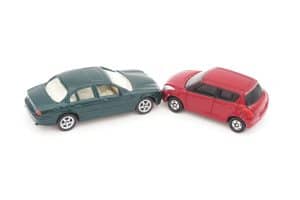
- The Savvy Promise
At Savvy, our mission is to empower you to make informed financial choices. While we maintain stringent editorial standards, this article may include mentions of products offered by our partners. Here’s how we generate income.
Selling your car is an important decision, whether you're upgrading to a new model or simply looking to free up some space and funds. However, navigating the selling process can be daunting, especially with various options available and considerations to weigh. In this guide, we walk you through the essential steps and considerations involved in selling your car, helping you make informed decisions and maximise your selling potential.
What factors should I consider when selling my car?
When deciding whether to sell your car, several factors come into play. Here’s what to keep in mind:
Condition of your car: if your car is in excellent condition with low mileage and no significant issues, you may be able to maximise your resale value and command a higher price from private buyers. On the other hand, if your car has mechanical issues or cosmetic damage, selling to a dealer who can handle repairs may be more practical.
Time constraints: if you need to sell quickly due to financial reasons or because you're purchasing a new car imminently, selling to a dealer may be the most suitable option. However, if you have the luxury of time and are willing to wait for the right buyer, selling privately could yield a higher sale price.
Market demand: research the demand for your specific make and model in your local area. If there is high demand for your car among private buyers, you may be able to sell it quickly and at a good price. However, if there is low demand or oversupply of similar vehicles on the market, selling to a dealer may be more practical.
Negotiation skills: if you're confident in your ability to negotiate and are comfortable handling inquiries and objections from potential buyers, selling privately may be a rewarding experience. However, if you're uncomfortable with negotiations or prefer a more straightforward transaction, selling to a dealer may be preferable.
Paperwork and legal requirements: selling a car privately involves handling paperwork and legal requirements. Ensure you familiarise yourself with the necessary paperwork and legal obligations involved in selling a car privately to avoid any issues or delays in the process.
Outstanding finance: if you haven't paid off your car loan yet, the process will differ slightly. You'll need to settle the loan payoff amount with your lender before selling or use the sale funds to pay it off. Dealerships can often handle this process for you, while private sales require extra steps to ensure a smooth transaction for both parties.
What’s the best way to sell my car?
The best way to sell your car depends on your priorities. The two main options are:
- Selling privately: this route offers the potential for a higher profit, especially if your car is in good condition. You control the selling process, setting the price and negotiating with buyers. However, it requires more effort, including advertising, managing enquiries and handling paperwork.
- Selling to a dealership: this is a faster and more convenient option. Dealerships appraise your car and offer an immediate purchase price, handling all the paperwork and legwork, but you will typically get a lower price than a private sale.
There are also additional approaches you could consider:
- Online car buying services: these companies specialise in buying used cars and offer a quick, easy way to sell. However, expect a lower price than a private sale or dealership trade-in.
- Car auctions: this can be quick, but you might get a lower price than a private sale. There are traditional in-person auctions or online formats.
- Car removal services: these companies buy even inoperable or damaged cars. It's the fastest way to get rid of your car, but you'll receive the least amount of money.
How to make a private car sale
Selling your car privately involves taking control of the entire process. Here's a step-by-step breakdown:
- Preparation is key: research the current market value of your car to determine a competitive asking price. Gather all the necessary paperwork, including the vehicle title, registration and service records. Give your car a thorough cleaning and address any minor cosmetic issues to make it more appealing to potential buyers looking to buy their car through a private sale.
- Spread the word: online car-selling platforms, classifieds websites and local car enthusiast forums can be effective ways to reach potential buyers. Take high-quality photos of your car and write a detailed and honest description highlighting the car's features, mileage, condition and any recent maintenance performed.
- Be responsive: respond promptly to enquiries and be prepared to answer questions about your car's history, condition and features. Be open to negotiation within reason but have a strong understanding of your car's market value to avoid getting lowballed.
- Finalise the sale: once you've accepted an offer, handle the paperwork transfer according to your state or territory’s regulations. This typically involves signing the vehicle title and completing any necessary registration updates.
What are the pros and cons of selling a car privately?
Pros:
- Potential for higher profit: selling your car privately often allows you to fetch a higher price compared to selling it to a dealer. Private buyers may be willing to pay more for a well-maintained vehicle, especially if it has desirable features or low mileage.
- Control over the selling process: when you sell your car privately, you have full control over the selling process, including setting the price, negotiating with buyers and arranging the terms of sale. This can be empowering for those who prefer to be hands-on in the selling process.
- No middleman fees: unlike selling to a dealer, there are typically no middleman fees involved when selling your car privately. This means you get to keep the entire sale amount without having to pay commissions or fees to a dealership.
Cons:
- Time and effort: selling a car privately can be time-consuming and requires effort on your part. You'll need to advertise the car, respond to inquiries from potential buyers, schedule viewings and test drives, and handle negotiations and paperwork.
- Limited market reach: your pool of potential buyers is limited to individuals in your local area or those who come across your listing online. This can result in a longer time to sell if there's low demand for your specific make and model.
- Risk of scams and fraud: dealing with private buyers carries a risk of encountering scams or fraudulent transactions. You need to be cautious when communicating with potential buyers and ensure that payment is secure before transferring ownership of the car.
How to sell your car to a dealer
- Get an appraisal: contact local dealerships or visit them in person to request an appraisal of your car. The dealer will inspect your car to assess its value based on factors such as its make, model, mileage, condition and market demand.
- Get a trade-in offer: if you're purchasing a new car from the dealership, they may offer you a trade-in value for your current vehicle. This involves deducting the appraised value of your car from the purchase price of the new vehicle, potentially saving you money on the overall transaction.
- Negotiation: while negotiation is typically less flexible when selling to a dealership compared to private buyers, you might have some room for discussion, especially if you're also considering buying a new car from them.
- Finalise the deal: after reaching an agreement, complete the transaction by transferring ownership of your car to the dealership. Provide them with the keys, documentation and any additional items included with the sale.
What are the pros and cons of going to a dealership?
Pros:
- Convenience and speed: selling your car to a dealer is often a quicker and more convenient option compared to selling privately. Dealerships have streamlined processes for purchasing cars and can provide an immediate offer without the need for advertising or negotiations.
- Trade-in opportunities: if you're planning to purchase a new car from the same dealership, selling your car to them as a trade-in can simplify the transaction. You can use the value of your old car towards the purchase price of a new one, potentially reducing your overall costs.
- Professional handling: dealerships handle all aspects of the sale process, including paperwork, inspections and legal requirements.
Cons:
- Lower sale price: dealerships typically offer lower prices for used cars compared to private buyers. They need to factor in potential reconditioning costs, profit margins and market demand when making an offer, which may result in a lower sale price for your vehicle.
- Limited transparency: when selling to a dealer, you may not have full transparency regarding how they determine the value of your car. Dealerships often use industry guides, market trends and their own appraisal processes to assess a car's worth, which may vary from one dealership to another.
- Potential for pressure tactics: some dealerships may employ pressure tactics to convince you to accept their offer or upsell additional products or services. It's essential to be cautious and firm in your negotiations to ensure you get a fair deal.
By considering these factors, you can make an informed decision about which option is the best choice for your situation. When it comes time to buy a new car, Savvy can help you with your financing needs. Whether you’re buying from a dealer or privately, you can compare quotes from dozens of lenders to find a car loan that suits your needs. Get started with a free, no-obligation quote today!
Did you find this page helpful?
This guide provides general information and does not consider your individual needs, finances or objectives. We do not make any recommendation or suggestion about which product is best for you based on your specific situation and we do not compare all companies in the market, or all products offered by all companies. It’s always important to consider whether professional financial, legal or taxation advice is appropriate for you before choosing or purchasing a financial product.
The content on our website is produced by experts in the field of finance and reviewed as part of our editorial guidelines. We endeavour to keep all information across our site updated with accurate information.
Approval for car loans is always subject to our lender’s terms, conditions and qualification criteria. Lenders will undertake a credit check in line with responsible lending obligations to help determine whether you’re in a position to take on the loan you’re applying for.
The interest rate, comparison rate, fees and monthly repayments will depend on factors specific to your profile, such as your financial situation, as well others, such as the loan’s size and your chosen repayment term. Costs such as broker fees, redraw fees or early repayment fees, and cost savings such as fee waivers, aren’t included in the comparison rate but may influence the cost of the loan. Different terms, fees or other loan amounts may result in a different comparison rate.









